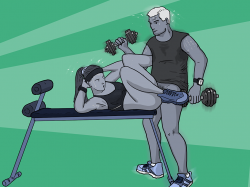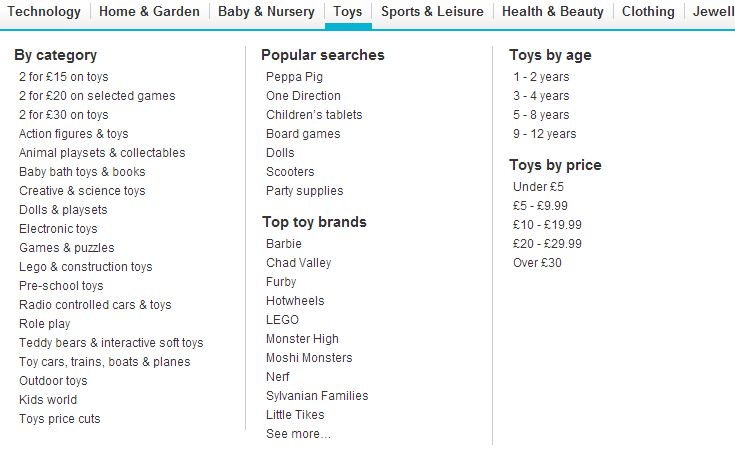Category Archives: Ranty ones

On family expectations
A member of my family is expecting a baby: cue applause, coos, expressions of delight, and the sound of excited aunties scrabbling at wallets to go and pick up the cutest, tiniest booties from a nearby branch of Mothercare.
Exciting though it is for some (the pregnant couple are clearly ecstatic about it), there are others who are tempering their squeals of joy with mutterings: “when’s the wedding?” they ask, with pursed lips and a sour expression.
The answer, in this case, is that there isn’t one.
Traditional family expectations
Perhaps it’s the season: a couple of weeks of touring relatives can give one an unnecessary burden of expectations. Where’s your boyfriend/girlfriend? When are you getting married? Where are the grandchildren with which you’re obliged to provide me?
There are some things we’re expected to do that are fair enough: respond to a nice gift with a thank you letter, help with the washing up so the cook doesn’t have to do it, smile at the Jeremy Clarkson book that Gran thought you’d like even though any decent human would rather eat it than read it. Sometimes we’re expected to do things because they’re just decent things to do, which is fine. But there’s more that sneaks over the line, laying expectations on individuals that are either impossible or undesirable to carry out.
Perhaps it’s families: older relatives are so used to passing on their wisdom that when advice turns to expectation we barely notice the difference. “You’re a lovely girl, you can find a great partner” easily melts into “you’ve got a lovely partner, you should marry him” and onward to “where’s the baby?” fairly naturally. There isn’t an obvious stopping point, at which relatives prompt themselves to step back.
We all do it
I understand why grandparents think a wedding should happen before a birth: it’s how it was in their day, and it’s what they’re used to. Luckily, though, not everyone shares the opinions of those born eight decades ago: we get less prescriptive, society becomes more liberal… it’s how progress happens.
But it happens much more slowly because so many of us stick to the status quo – we expect things of others because it’s the easy thing to do. Far simpler to join in with teasing loved-up friends about marriage and babies than to leave well alone and let them make up their own minds. Far easier to frown at people who choose something different than to celebrate their choice and show interest.
I’m sick of these unnecessary expectations. Not just the ones about marriage and babies, but the other ones too. Losing weight, going on dates, earning money, buying a house, having exactly the right amount of fun but not so much you appear out of control. Have the right kind of sex (fun, varied, but not too kinky) with exactly the right people (ones you love, ideally one at a time). We expect people to be bright and eager, but not desperate. To have a plan, but not too much ambition. To make money, but in ways we approve of. To live, achieve, then die to order.
The rebellious ones
Perhaps worse is that even when people reject these things we still paint them into a corner. As the one who rejects stuff. The one who isn’t traditional. The one who’s rebellious. So-and-so will never get married because she’s always been the odd one out. That boy will always sleep around because he always has. Rejecting the traditional trajectory doesn’t send you on a whole new journey, without any expectations at all, it just lumbers you with a new set.
So while the pregnant couple grimace through questions about weddings, others are expected to never get married, or at least to do something wild and reckless before they don a ring and a dress. Still others have to grin and bear a grilling on why they haven’t got a boyfriend yet, when the answer may well be ‘I just don’t want one‘.
I’m guilty of this too. For all the ‘live and let live’ ranting on this blog, Christmas with relatives has led me to deduce that although when pressed I’ll tell you I have no expectations, my default position is to assume everyone’s similar. That we all want more or less the same things, and that my own route to happiness is the best one for us all to take.
My resolution for 2014: expect nothing.

On extreme porn close-ups
Nothing kills my mood quicker than a genital close-up. I have no problem with people’s bodies, and I think that there’s a distinct type of beauty in a nice, solid cock, but I find it pretty difficult to find porn with hot scenarios that isn’t going to cut to a gynaecological close-up just as I’m getting to the juicy bit.
I know some people love it – most gentlemen with whom I’ve watched porn have expressed a strong desire to look not just *at* someone but *up* them, so I can see why these shots are included: they clearly please a proportion of the crowd. But they don’t please me.
To clarify: this isn’t a disgust reaction – I am not horrified by genitals. Nor am I shaming the spectacular men and women who show them off on screen, and fuck like champions for an audience of internet wankers such as myself. I’m just lamenting the fact that so many directors insist on close-cropped shots of trains going into tunnels, disembodied vulvas being rummaged at by strangers’ hands, or those same hands pulling butt-cheeks apart until all you can see is a gaping void. And these things usually happen during the climax of the scene – at just the moment when the sex is getting hottest and most furious, when the actors would be building to a moment of exquisite lust, our director cuts away from their faces and straight to parts of their body that are far less capable of expressing emotion.
What I’m saying is this: I’d like to see something super-hot that doesn’t turn into a medical documentary just as it’s getting to the good bit.
My porn wish list
I’m not saying that people who like this are wrong/evil/stupid, and that everyone should be forced to watch only porn that comes from a set-list I’ve prescribed. I’m just having a general moan about the number of times I’ve had to cut short a wank to find a video that’s got more fucking and less fanny.
Perhaps the kind of porn I like (lots of kinky, rough, angry fucking) leans more towards these gyno shots, because that’s what directors feel the audience will want. Or perhaps I’m just crap at finding good porn. So, in case any awesome pornographers are watching, or you’ve come across any videos that show shagging without an accompanying smear test, here are some things I’d love to see more of in porn:
Lots and lots of long shots of people fucking
I like watching people actually fuck. Although head and handjobs are fun to have, I find them far less fun to watch, because there isn’t nearly as much action. Jiggling tits, pounding arses, hands gripping squidgy flesh, sweat dripping from people who are really getting into it? Yes. Fumbling and rubbing? Meh.
While we’re at it, that thing that porn stars do where they push a cock into the side of their cheek? It reminds me of the standard childish symbol for ‘blow-job’ where you’d make a wanking gesture near your mouth while sticking your tongue sideways. I get why it’s more visual than other suckoff techniques, but I’ve never met a guy who has expressed a desire that I do that to his penis.
Noises
I’ve waffled on before about how noises are hot. Not fake noises – I don’t need scripted, efficient ‘ooh’s and ‘aah’s. I want genuine noises – the ‘unnggh’s and ‘aaargh’s that people make when they’re fucking like they’ve really let go.
Especially – and I cannot stress this enough – from the men. Men in porn are often strangely silent, as if they’ve expressed opinions on the sex before and have been told to keep their mouths shut. Those that do talk often say things that don’t necessarily correlate to what’s happening on screen, as if the guy is just reeling off a list of accepted phrases like a politician at a press conference spouting ‘hard-working families’ over and over again with no discernible relevance.
Faces
If you’re going to give me any sort of close-up, I would like it to be of someone’s face. Ideally, because I am straight and female and pervy, the dude’s. In fact, if I’m completely honest, I have a deep and abiding preference for porn in which the women look a bit bored – in which they’re either idly or sarcastically pandering to the dude’s insatiable lust while they earn a paycheque/watch themselves in the mirror/wait for the washing machine to finish a spin cycle.
I appreciate this specific kink isn’t for everyone, but I know a hell of a lot of people who’d like to see more face. There are, of course, millions of porn videos that show faces, but my main issue with them is that they are not the faces of hot people reacting to orgasmic delight, but usually faces that are being jizzed on. Pop shots are, of course, a porn staple, so I don’t expect this to disappear any time soon, but we could do with more of the other: if you’re the one jizzing, it’s your face I want to see.
Shameless plug: if you want to read more about dirty fucking, and thoughts on porn, my book is currently ridiculously cheap on Amazon (59p in the UK, 96c in the US). I have no idea how long it’ll be on offer for, so if you want it then now’s a good time to get a copy.

On sexercise: is sex really good exercise?
How brilliant is sex as a form of exercise? I’ve always been sceptical of cheesy articles that claim you can burn off your Christmas dinner with a little bit of sexercise. The claim is ridiculous for obvious reasons: not only does every couple have different sexual preferences, but even in a couple your tastes change from week to week depending on your mood. Sure, you might burn 300 calories with one particularly rigorous shag, but if the next night involves a quickie in which you lie back and think of England while your partner (or partners) put in all the work, you’re unlikely to have burnt off so much as a sprout or two.

On the brothel raids in Soho
This morning, police entered premises in London’s Soho and arrested a number of people. Latest reports say 22. In an official statement, Chief Superintendent Paul Rickett said:
“Victims have identified brothels where they have been trafficked for sexual exploitation and raped.”
Commander Alison Newcomb of Westminster Police said:
“This is not about the prosecution of prostitutes, this is about making the area safe. We do know a lot of the women are trafficked or are vulnerable so this is about taking the danger out of Soho.”
So a quick question: if safety of the women involved is genuinely what the police were concerned about, then why the hell did they subsequently allow (or, indeed, invite) reporters to take gratuitous pap shots of the women involved?
Put aside your views on sex work
This issue isn’t about whether you approve or disapprove of sex work. Personally, I think that making money by selling sexual skills is as valid a life choice as making money by singing for strangers, fixing cars, or pushing paper across a desk until beer o’clock on Friday.
I’d further opine that those who are anti-sex work because they’re concerned about trafficking have got their logic knickers in a twist. If you hate trafficking, coercion and rape then you’re not anti-sex work per se, you’re anti-trafficking, anti-coercion, and anti-rape. Which we all are.
But even if you disagree with me on the work itself, I cannot see how you can be anything other than shocked that these photos were taken, let alone printed in the Evening Standard.
Focus on the pictures
In nearly all of the pictures, the women involved are covering their faces. What better way to categorically state “I do not want you to photograph me.” These women have removed their consent to be photographed by anyone.
But no matter, of course, because the most important thing to the press is that we get a good long look at groups of women who – *sexy shiver* – will fuck you for money. Go on, have a nice little look: that’s free.
At the same time as the press are slavering over these women, the Chief Superintendent is giving a statement which highlights the fact that the police believe some of them have been used and abused in the line of their work. Can you remember the last time you saw a story where the victim of a crime, or someone who was supposedly being protected, was photographed against their will and slapped all over a national paper while the police stood by and did nothing? Me neither.
As the excellent @Fornicatrix put it:
They pixelated those faces as much for our uninhibited viewing pleasure as for their privacy. Who cares about the privacy of whores right?
Why were photos taken of the brothel raids in Soho?
The police believe that in performing these raids, they’d secure the safety of women who had been trafficked or coerced into working there. There are two possibilities here:
– Option one: the police are mistaken, and these women are working off their own bat. If this is the case then the women, rather than having been ‘made safe’ have been subjected to some incredibly intrusive press attention. In fact, as the English Prostitutes Collective pointed out, they’ve potentially been put in danger: “The police must know that some women will end up working on the street as a result, where it is much more dangerous.”
– Option two: the police are right, and these women have been trafficked and coerced. If this is the case then what they have just done is lined some victims up in front of the paparazzi, and just let them snap away.
I’m not an expert on sex work, this is just my initial kneejerk ‘WTF’. But I think this needs discussing because, well, WTF. If you’ve read any other good blogs on this topic, or written any yourself, I’d love to hear more from people about it, especially if you’re more informed than I am on sex work and the myriad issues surrounding it. Please leave a link in the comments and I’ll add it to this blog post when I can.
@NymphomaniacNes has posted on this topic too – I’d recommend you check out her thoughts as well.
And this great piece from @sassylapdancer, which was recommended to me on Twitter.
You might also want to check out this petition.
And read @pastachips, who has given a brilliant overview of the ‘saving women’ issue in the Guardian.

On the 12 sexist (and not-so-sexist) Christmas gift lists
Humbugs abound as I do my annual Christmas shop. Not because I don’t revel in the idea of finding exciting and unique gifts to shower upon my loved ones, but because everywhere I turn I’m confronted with ridiculous lists of ‘gift ideas for him’ or, indeed, ‘her.’ In honour of this horror, here are my 12 sexist (and not so sexist) Christmas gift lists.
On the first day of Christmas my true love/friend/mum/colleague who drew my name in the office secret Santa gave to me…
1. A Ryan Gosling tea-towel
That’s right, number one on the Prezzybox list of ‘stocking fillers for women‘ is a Ryan Gosling tea towel. Because if there’s one thing women love more than spending quality time in the kitchen, it’s drying pots and pans with a celebrity’s face. Bonus points for trying to persuade us to spend almost an entire tenner on a ‘stocking filler’.
Note that those who might not have been tempted by the Ryan Gosling tea towel might instead like chocolate pills. So what’s the equivalent for men?
2. Tabasco-flavoured chocolate
Luckily the man in your life can have chocolate in his stocking too, but none of this ‘chocolate pills’ nonsense. This sweet treat for your man is Tabasco-flavoured. According to prezzybox, to women chocolate is some sort of emergency medication, but to men it is a delivery mechanism for SPICY HEAT.
3. A gendered gift experience
For those with more money to spend, why not treat your loved one to a special day? They can go paintballing, if they are blue, or for afternoon tea, if they are pink. Boots actually gets bonus points in the ‘trying not to be too sexist’ stakes, because when you click on either of these panels they take you to the same page. If they get rid of the pink ‘for her’ and blue ‘for him’ landing pages next year, Father Christmas might take them off his ‘naughty’ list.
4. A mug that kills women who touch it
There’s nothing more traditional than a mug with a crap slogan, and iwoot (the website formerly known as I Want One Of Those Dot Com) has come through with a few. Their gifts for him offers the ‘man mug‘. It comes complete with spirit level, to check how horizontal your masculinity is. It also has a sign on the bottom which makes it absolutely clear the mug is Not For Girl -, I can only assume that if a lady drinks from it, she is instantly poisoned:
Still, ladies mustn’t worry, because if they’re lucky then they’ll get a mug in their stocking too. For women iwoot suggests this ‘Little Miss Giggles’ mug (spirit level definitely not included):
5. Virgin experiences
If you’re after a special day out, Virgin’s one-upped Boots and does indeed have special, separate pages for women and men. Phew. No more wading through spa days when you want to buy a dude a day out: it’s cars and paintball almost all the way. I say ‘almost’ because… what’s this?
That’s right – a special afternoon tea. Not one of those boring ladies’ ones with sandwiches, no. This one has been (as the copy explains) ‘designed to satisfy a man’s taste and appetite’. Which it turns out means switching sandwiches for mini toad-in-the-hole. Oh, and illustrating the ‘tea’ with a picture that contains ‘beer’. Although, according to the copy, there will only be a choice of tea or coffee, there is beer in the picture because that is what men like. See below.
7. Beer, glorious beer
How much do men like beer? A lot, according to totallyfunky.co.uk.
Of course these beer-related items only appear first because the list is alphabetical, and if you scroll down further you’ll see that men also like Darth Vader and eating out of dog bowls.
So that’s Christmas sorted for your dad/brother/husband etc. But what should you get your daughter? Totallyfunky suggests bath products, gloves, and a shoe that you put a spoon in. Or you could go for…
7. Anything to do with One Direction
If the lady you’re buying for is a bit too young for the Ryan Gosling tea towel, The Works has you covered. With One Direction. EVERYWHERE.
Of course, boys don’t like One Direction, so instead they get dinosaurs and helicopters.
8. Not-so-sexy underwear
One of my personal bugbears is that when it comes to Christmas underwear, straight guys are encouraged to buy something sexy, slinky, and sensuous for their partners, whereas straight women are offered a selection of comedy Christmas socks or hilarious cock-cosies with which to wow him. This red-hot image brought to you by TopMan…
9. A world I don’t want to live in
Onwards, now, to presentfinder, where boyfriends are ‘difficult’ and girlfriends are ‘gorgeous’. It’s tricky to compare these gifts because they’re all so twee and quirky, but essentially we’re being asked to believe in a world where men like booze, money and edible tits which come in a tiny metal box:
While girls like pink VW camper vans, and being given plasters for Christmas.
Is there a better way to write Christmas gift lists?
If we say to shops “hey, this Christmas gift list is a bit sexist, isn’t it?” their response will most likely be “but it has to be – this is the stuff you’re searching for, and the stuff you end up eventually buying. If we were to stop being twats about it we’d never sell anything.” Which is partly true. We do search for ‘Christmas gifts for her’ and ‘Christmas gifts for him’ (although it looks like we’re doing it less each year).
But that’s not to say they can’t grab our attention in other ways. It’s more than possible to market effectively without descending into lazy stereotypes. Even at Christmas.
To round off the twelve, here are a few examples of shops that, I think, are doing it better.
Not-so-sexist Christmas gift lists
10. Lovehoney’s underwear hot-off
As mentioned above, I dread the ‘Christmas underwear’ thing. Mainly because it seems the idea is for a woman to receive something sexy and lacy and beautiful, and a man to get a comedy santa-hat for his bellend.
So credit, then, to Lovehoney. As a sex toy retailer, it’d be pretty hard for them to not split their toys by sex, given that so many of them depend on the sex organs that you have. So their ‘gifts for her‘ and ‘gifts for him‘ pages make sense. But on top of that, they also have the same feel: these gifts are genuine gifts for people. It’s not split by comedy vs sex: there are genuinely sexy pants for the guys, and toys that individuals will actually play with (rather than giggle at) on both sides of the sex divide.
UPDATE September 2017: Well this is very embarrassing. It’s actually not necessary to split sex toys by gender – it’s far more helpful to split by category in this instance too. Not only because there’s no need to list out e.g. ‘butt plugs for men’ (spoiler: butt plugs can be used by anyone who has a butt) but it also excludes trans and non-binary people.
11. Argos
To show it’s possible to sell children’s toys without painting half your website pink and shouting “YOU WANT TO BE A PRINCESS, DON’T YOU, PRINCESS?!” here’s a picture of the Argos ‘toys’ menu:
Do you see? Toys divided by category, brand, age and popularity. If you can find any hint of gender segregation there I’ll give you a mince pie.
12. Marks and Spencer
Correct me if I’m wrong, but I’ve had a peruse of the M&S ‘Christmas’ page, and I can’t find anything that is unnecessarily gendered.
It appears that the nation’s favourite place to buy socks and knickers has resisted compiling lists of ‘gifts for him’ and ‘gifts for her’. They stick to ‘men’ and ‘women’ for clothes, which is understandable given that’s how they split it in the shops, but there don’t seem to be any lists of gifts ‘for him’ or ‘for her’. The only page I can find where they categorise gifts is by personality. “Gifts for foodies”, “Gifts for gardeners” and suchlike.
For that they get a gold star to stick on top of their Christmas tree.
The examples above are, of course, the product of my own frequently-flawed opinions and half-arsed research via Google. But I’d welcome any more examples (especially ones of shops who do it well) in the comments or via Twitter. Please tag them with #RyanGoslingTeaTowel, because Christmas should be FUN.
How to not be sexist at Christmas
Every good Christmas story has a moral, and this one’s no different. Just as it’s possible to sell toys without labeling them ‘for boys’ and ‘for girls’, it’s more than possible to flog your Christmas deals without assuming that men want beer and women want bubble bath. Not only will you get my admiration if you split your Christmas deals by personality, you’re also (prepare for a shock) making it genuinely easier for me to find the perfect present. After all, we’re not painfully simple creatures: we usually know more about the person we’re buying for than simply what gender they identify as.
I know that Sarah likes cooking, Bob likes cosy sleepwear, and yes, Ashley is a big fan of both Ryan Gosling and drying dishes. It’s a damn sight easier to find these presents if you narrow it down by something useful.













